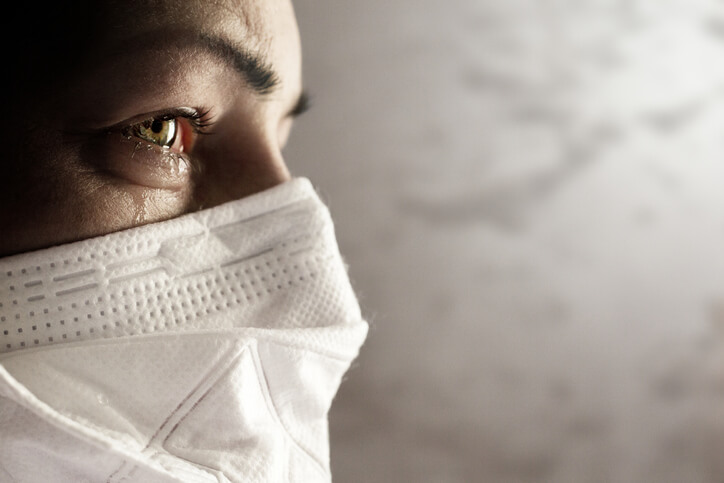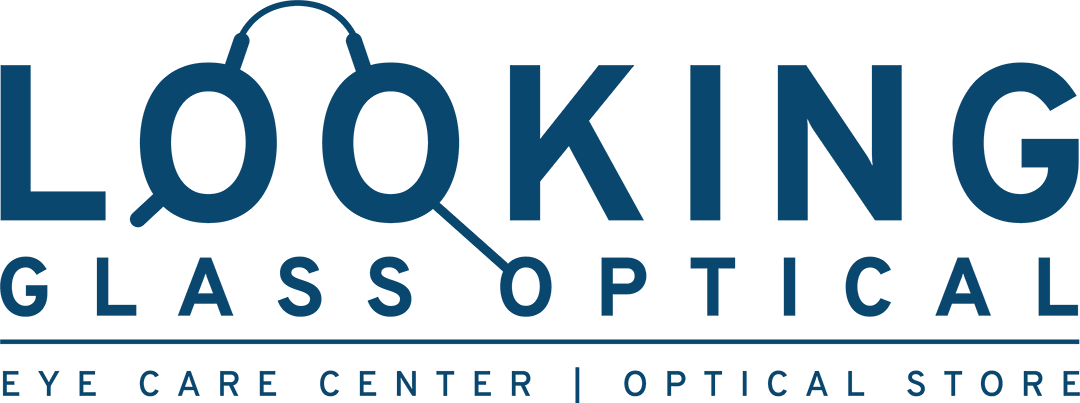COVID-19: Senior Eye Care Safety & Prevention
In the midst of the current COVID-19 crisis, urgent and routine eye care is essential. At Looking Glass Optical, the health and safety of our patients is our main concern. And, we understand the apprehension and caution that many may feel about re-entering a doctor’s office during this time. Especially as it pertains to senior eye care safety, high-risk individuals, and those with pre-existing conditions. However, amid the rising concern of the spread of the virus in Maryland, we want to assure our patients of the strict hygiene and safety precautions that are currently being implemented. The American Academy of Ophthalmology has provided guidelines for eye care practitioners, which we have summarized below.
Senior Eye Care During a Pandemic
It’s no secret that our eye health changes as we age. Macular degeneration, Glaucoma, and Diabetes are among the most common diseases that cause vision loss, especially when it comes to senior eye care. And, it’s important to note that many eye diseases do not present early symptoms. Thus, making it essential for seniors to maintain regular eye exams.
Moreover, Dr. Teles has over 30 years experience with senior eye care, so we understand your unique needs and health concerns. Overall, in the wake of COVID-19, we want all of our vulnerable patients to know that we are following strict hygiene and disinfection guidelines to keep you safe.
Eye Exams and Procedures May Look Different
As eye care clinics gradually begin to schedule in-person appointments again, there will be new ways of doing things to protect you, others patients, and office staff from exposure to the virus. As such, it remains imperative that we limit the number of close physical interactions as we continue to provide the eye care that you need. Before visiting Looking Glass Optical for your appointment, please refer to the following procedural changes:
- To protect you and others, please wear a mask to your appointment. Your doctor will also wear a mask, and may also wear gloves, goggles or a plastic shield over their eyes.
- Your temperature may be checked upon entry to the building.
- During this time, many doctor’s offices are limiting the amount of people in the building. Therefore, if you do not need someone to be there with you for the actual appointment, please do not bring them with you.
- To protect you, the other patients, and the office staff from exposure in crowded waiting areas, you may be asked to wait outside, or in your car, instead of in the normal waiting room.
- Your doctor may ask you to wait to speak until after your eye exam is complete. Then, they can talk with you and answer questions when they can be a safe distance from you.
- Eye doctors and their staff will be thoroughly disinfecting surfaces and equipment between patients.
How to Protect Your Eyes
Coronavirus can spread through the eyes, just as it does through the mouth or nose. It is possible to become infected by touching your eyes after touching something that has the virus on it. As you go about your daily eye care routine, pay close attention to the following eye safety tips to reduce the spread of COVID-19.
1. Avoid Rubbing Your Eyes
Avoid touching irritated or dry eyes with your fingers. If you must scratch your eye, use a tissue and then throw it away and wash your hands immediately after. You may also use moisturizing eye drops to prevent rubbing and touching your eyes if you experience dry eyes.
2. Practice Safe Hygiene and Social Distancing
As you know, proper hand-washing and social distancing are essential in reducing your risk, as well as the risk to others, of contracting COVID-19. Most importantly, remember to keep your hands away from your face; never touch your nose, mouth, or eyes.
3. Wear Contact Lenses Safely
There is no scientific evidence that contact lens wear is problematic or increases your chances of contracting the virus. However, it remains vital to continue following all strict hygiene protocols during your morning and nighttime routine. To prevent contact lens infections of all kinds (e.g. bacteria, viral and fungal diseases), The American Academy of Optometry recommends wearers must:
- Wash hands thoroughly, at least 20 seconds with soap and water, and dry hands completely.
- Use daily disposable contact lenses if possible.
- If solutions are required, use them appropriately and do not reuse solutions.
- Replace cases monthly or more frequently. Rinse, wipe, and air-dry contact lens cases every day.
- Do not wear contact lenses when you are ill.
Patients are Our Priority
We understand how scary things seem right now. But, its important to know that even the smallest of actions can make a difference in your health and wellbeing. If you have any questions about our new hygiene policy, senior eye care safety, or appointments, please feel free to contact our office or call us at 410-768-0202. Our team will do our absolute best to help answer any questions you may have.
Share

